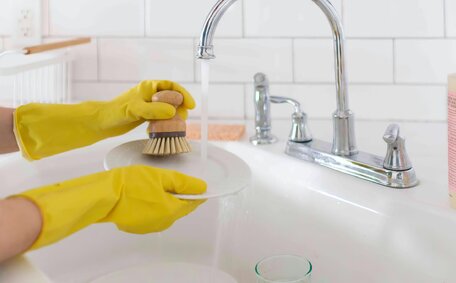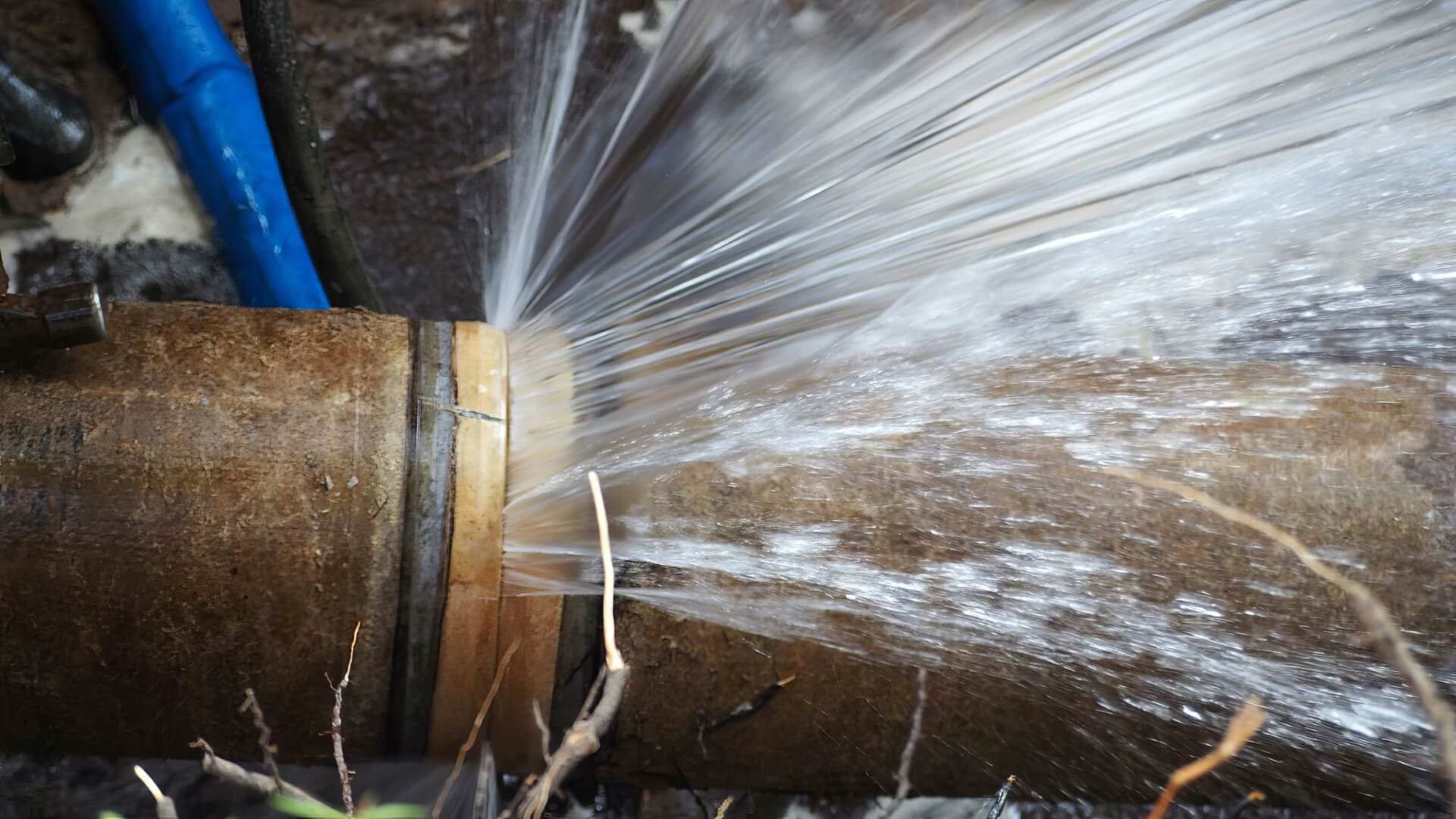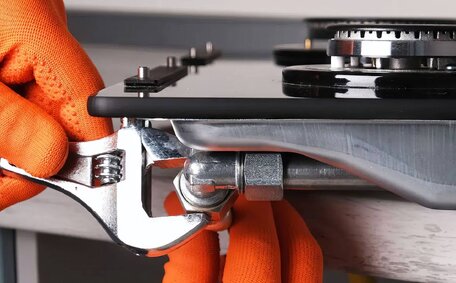How Do Solar Hot Water Systems Work?
Solar hot water systems use solar panels for water heating as collectors, usually mounted on the roof, to absorb heat from the sun and transfer it to water. There are two types of solar hot water collectors to consider:
- Flat plate collectors - These are insulated, weatherproof boxes that contain pipes through which water circulates. The interaction between the panel and water converts the sun’s energy into heat upon contact.
- Evacuated tube collector panels - These contain parallel rows of transparent glass tubes, each housing a glass tube within a vacuum. Sunlight penetrates the outer tube, heating the inner tube that has pipes for water circulation.
Cold water from any household pipes is pumped to the collectors where it gets heated by the sun, then flows into an insulated water storage tank, ready to provide hot water any time. When you turn on a hot water tap during the day, heated water from the water system can be delivered rather than cold water heated by traditional water heaters.
During periods of low sunlight, solar hot water systems are equipped with a gas or electric booster, ensuring hot water availability. Yes, a gas or electric booster within the hot water system can fulfil this need. On sunny days, solar hot water systems, which excel in efficiency, cover 60-90% of a household’s hot water needs, significantly reducing both greenhouse gas emissions and energy bills.
Types of Solar Hot Water Systems
Electric Hot Water Systems
Electric storage devices, such as water heaters, utilise Electric water heaters use internal elements to heat water in an insulated tank. Your system can employ electric elements to heat water on demand.
Gas Hot Water Systems
Gas water heaters employ natural gas or LPG burners to warm water stored in a tank. Gas systems have cheaper installation costs than electric systems but higher operating expenses compared to efficient solar or heat pump systems.
Heat Pump Hot Water Systems
You can make use of solar heat pump water heaters effectively as they use refrigerant gas and a compressor to extract heat from the air and transfer it to the water tank. They utilise the ambient energy heat which is more cost-effective than electric or gas systems in the long run. These systems work efficiently as they heat air from warm climates and thus can help reduce your running costs.
Flat Plate Solar Collectors
Flat plate solar collectors have become a primary choice due to their operational simplicity and efficiency. Their widespread use in residential settings is a significant factor. They consist of a dark absorber plate, vital for your heating needs, inside an insulated metal box with a glass or polymer cover.
The key benefit of flat plate collectors is that they capture solar energy effectively, heating water even under cooler or partially overcast conditions. Their versatility makes them appropriate for a variety of climates, including those similar to Chatswood.
Some efficiency features of flat plate collectors include:
- Selective black coatings on the absorber plate that maximise heat absorption.
- Box and pipe insulation to minimise heat loss.
- Tilt and directional adaption to maximise exposure to the sun.
Well-designed flat plate systems can easily provide 60-80% of the annual water your household needs and last 15-30 years with minimal maintenance required.
Evacuated Tube Solar Collectors
Evacuated tubes solar collectors contain rows of parallel transparent glass tubes, each with a glass tube inside held under vacuum. This unique design means the collectors can absorb and retain more solar heat, even on cold or cloudy days.
The vacuum removes air and eliminates conductive and convective heat loss. This allows the enclosed inner glass tube to achieve temperatures of up to 200°C. The inner tube contains heat pipes, which are a key component of the system your collector uses to circulate a heat transfer fluid such as water or antifreeze.
Sunlight penetrating the outer tube heats the transfer fluid within the central tube, which then circulates to the storage tank to supply hot water.
Key benefits of evacuated tube systems include:
- Higher efficiency than flat plate collectors
- Lower heat losses so better suited to colder climates
- Can still heat water effectively with diffuse or indirect sunlight
- Long lifespan with minimal maintenance needed
While evacuated tube systems have a higher initial cost, their superior energy production may result in faster payback periods.
Financial Benefits and Cost Savings
Installing solar water heaters offers considerable long-term financial advantages for homeowners.
The primary way to save money is by lowering your energy bills. Solar water heating systems can drastically cut down on your energy tariff by satisfying 60-90% of your water heating demand, significantly reducing your reliance on electricity or gas. This way, more funds can be conserved than traditional water heating methods allow, saving on energy costs year after year.
You might ponder how much solar hot water leads to substantial savings? Over two decades, you could save more than $5,000 compared to using an electric water heater. With rising energy prices, the savings could be even greater.
Other financial advantages that can reduce household expenses encompass:
- Higher resale value - Solar hot water systems can value your home additionally, often selling for 3-5% more.
- Government rebates - Solar Credits subsidies and upfront rebates can enhance your investment by offsetting up to 60% of the initial cost.
- Faster payback period - Reduced energy bills mean you recoup your investment faster.
While solar hot water systems can cost more upfront compared to their alternatives, households can usually recoup the difference in energy savings within 4-8 years. With lifespans of 15 to 30 years, the long-term savings often more than justify the initial investment for many homes.
Federal Solar Rebates and Incentives
Switching solar has never been more accessible, with generous rebates and financial incentives offered by the Australian federal government to households adopting renewable energy.
The primary federal incentive for solar PV systems is the Small-scale Renewable Energy Scheme (SRES). This provides Solar Credits which lower the upfront cost of installing a solar hot water system. The rebate amount can vary depending on the solar potential of your property but can offset 30-60% of total system costs.
To be eligible, your solar hot water system needs to be installed by a Clean Energy Council accredited installer. The number of Solar Credits you’ll receive depends on the renewable energy the system will produce annually over its lifetime.
By installing an efficient solar hot water system, you can maximise financial incentives. This results in a quicker payback period, especially with Chatswood’s climate and the trend of increasing electricity prices.
Additional financial assistance is available through the NSW government’s Smart Energy programme, offering discounts on solar hot water systems.
Contact us to explore all opportunities and benefits of getting system specifics and installation options for your home.
Return on Investment Over System Lifespan
Solar hot water systems can represent an excellent return on investment for homeowners due to their long lifespan and ability to drastically reduce energy bills.
While the upfront cost is higher, a solar hot water system often pays for itself within 5-7 years thanks to savings of 50-75% on annual water heating bills. The long-term savings, coupled with the anticipated 15 to 30-year lifespan, easily offset the upfront cost.
Apart from financial gains, solar hot water systems also offer several non-monetary benefits:
- Reduced carbon emissions - Solar water heating displaces 1.5 tonnes of CO2 per year on average.
- Increased home resale value - Homes with solar hot water often sell for 3-5% more.
- Greater energy independence - Rely less on fossil fuels and the electricity grid.
- Environmental benefits - Help conserve water and reduce pollution.
When weighing up the return on investment of a solar hot water system, you need to look beyond short term costs. The system will keep saving you money and providing environmental benefits year after year. This long lifespan combined with rising energy prices mean most households see excellent ROI from installing solar hot water.
Comparisons to Electric, Gas, and Heat Pump Systems
When comparing solar hot water systems in Chatswood to electric, gas, and heat pump options, there are several factors to consider:
Cost
Solar hot water systems have higher upfront costs, but will save 50-75% on annual water heating bills thanks to free energy from the sun. This provides payback in 4-7 years. Electric, gas and heat pumps have lower initial costs but higher operating expenses, lacking the solar power efficiency long-term.
Efficiency
Solar collectors can meet 60-90% of household hot water demand. Heat pumps achieve 1.5 - 3 times the energy efficiency of electrical systems.
Environmental Impact
Solar systems operate emission-free, while heat pumps generate roughly a third of the emissions compared to gas and electric heaters. For the lowest carbon footprint, solar or a renewable-powered heat pump is recommended.
Suitability
Solar hot water systems are well-suited to many households. For tailored advice on which system fits your home, feel free to contact us.
Heat pumps, ideal for heating water, perform better for households with high hot water usage. Electric or gas systems suit rental properties or homes where roof space for solar is inadequate.
Environmental Impact
Solar hot water systems have significant environmental benefits compared to conventional electric, gas or heat pump water heaters.
By utilising the free energy from the sun, they sidestep the greenhouse gas emissions typically associated with water heating from burning fossil fuels. Over a 15-20 year lifespan, a solar hot water system in Chatswood can reduce emissions by over 20 tonnes of CO2.
Other eco-friendly benefits, leading to savings environmental on multiple fronts, include:
- Reduced water wastage - Solar heating is more efficient so less water goes down the drain waiting for hot water.
- Lower infrastructure impact - Less strain on power grids during peak demand.
- Less landfill waste - Long life systems with recyclable materials at end of life.
With the ability to eliminate over 1.5 tonnes of carbon emissions per household per year, installing solar hot water is one of the most effective ways Chatswood homeowners can shrink their environmental footprint.
Understanding the advancements in solar hot water technology underscores its role in sustainability.
Factors to Consider Before Switching
There are a few key factors to weigh up when considering a switch to solar hot water:
- Assess your hot water usage - Solar can meet 60-90% of needs but may not suit homes with excessively high demand.
- Evaluate your location’s solar potential, keeping in mind that evacuated tube systems function in diffuse light while flat plate collectors require full sunlight.
- Ensure you have adequate unshaded north-facing roof space for collectors.
- Compare types of solar systems against your budget Upfront cost varies but lifetime savings are significant.
- Check eligibility for rebates & solar credits to help offset system costs.
- Choose an accredited installer for proper siting, installation and maximum efficiency.
With advancements in solar hot water technology, now is an optimal time to harness the sun’s free energy. Contact us to assess if its right for you.
Finding the Right System and Installer
Selecting an appropriate solar hot water system and experienced installer is crucial for optimising efficiency and financial returns.
We recommend considering the following:
- Assess your hot water usage and household needs to select the right system size.
- Compare types of solar systems like flat plate vs evacuated tube to suit your budget.
- Consider the optimal sun exposure for solar collectors based on your home’s orientation.
- Only use Clean Energy Council accredited installers for eligibility for solar rebates.
- Choose an installer with extensive solar hot water experience and good reviews.
- Get quotes from at least 3 installers to compare quality of service and pricing.
- Check warranties on collectors and storage tanks cover at least 5-10 years.
As a trusted, local plumbing business that has installed solar hot water systems in Chatswood for over 20 years, contact Chatswood Plumbing to arrange an on-site consultation. Our team can assess your needs, advise the best system for your circumstances, and provide obligation free quotes to kickstart your solar switch.
Conclusion
Solar hot water systems offer substantial financial and environmental advantages, harnessing the sun’s free energy.
Despite higher upfront costs, solar hot water systems can yield a return on investment in 4-7 years, saving about 50-75% on water heating bills over their lifetime. And with expected lifespans of 15-30 years, the financial benefits easily justify the initial purchase price.
Beyond savings of over $5,000 compared to conventional water heaters, solar hot water reduces carbon emissions by 1.5 tonnes annually and increases home resale value by 3-5%.
With solar hot water technology improving all the time and energy prices set to keep rising, now is the ideal time to tap into the power of the sun.
Contact Chatswood Plumbing on 1300 349 338 or [email protected] to discuss the best solar hot water system for your household needs and budget.






